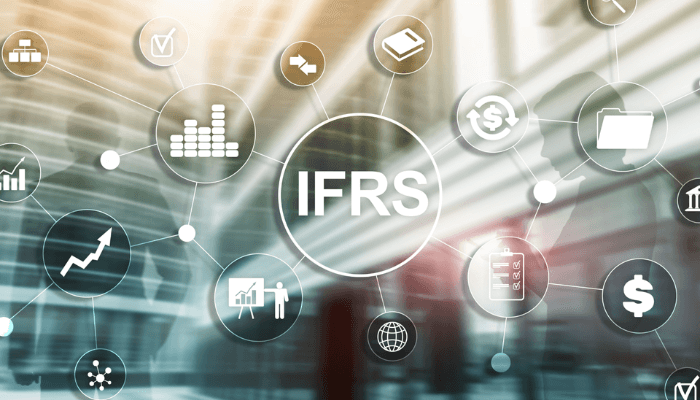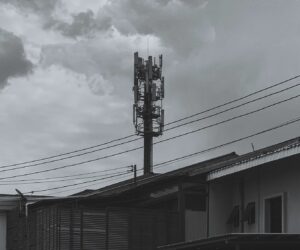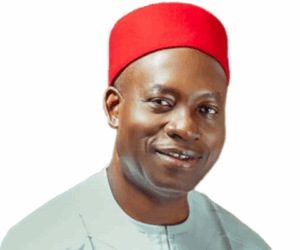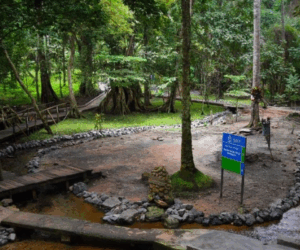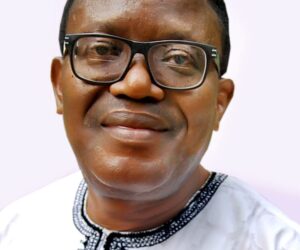In June 2023, the International Financial Reporting Standards (IFRS) Foundation introduced its inaugural global Sustainability Disclosure Standards, IFRS S1 and IFRS S2. This marks a new era for how companies report on their environmental, social, and governance (ESG) performance.
For Nigerian businesses, this isn’t just another global trend. It’s a strategic turning point. These standards will reshape how companies measure, manage, and communicate their ESG risks and opportunities.
More importantly, they will determine who gets access to capital, credibility, and competitive advantage.
What are IFRS S1 and S2?
IFRS S1 sets the general requirements for sustainability-related financial disclosures. It mandates that companies disclose material ESG risks and opportunities that could affect investor decisions.
IFRS S2 focuses specifically on climate-related disclosures, aligning with the Task Force on Climate-related Financial Disclosures (TCFD). This includes governance structures, strategic climate risks, mitigation plans, and key metrics.
In short, these standards aim to do for sustainability reporting what IFRS did for financial reporting: create a consistent, comparable, and credible global baseline.
Nigeria’s adoption: Leading the continent
In early 2024, the Financial Reporting Council (FRC) of Nigeria announced its readiness to adopt the IFRS Sustainability Standards into its corporate governance and reporting frameworks.
The FRC intends to integrate these standards gradually, starting with public interest entities and large private companies. This is a bold and commendable step.
It moves ESG disclosures from the realm of “feel-good” storytelling into structured, regulated reporting. And while implementation may be phased, the future is clear: businesses that want to thrive in this new era must act now, not wait for the mandate.
What this means for Nigerian businesses
Whether you’re a listed company, a large private enterprise, an SME seeking export opportunities, or a supplier to multinational clients, the impact is universal.
Here’s why:
Investor confidence: Global and local investors increasingly require ESG-aligned disclosures before committing capital. Adopting IFRS standards boosts your transparency and positions you as investment-ready.
Market access & global competitiveness: Reporting in a globally recognised ESG language builds trust with international partners and opens doors to trade and financing.
Supply chain relevance: Many multinationals now require ESG-aligned reporting from their vendors. Businesses without traceable ESG practices risk being cut out of global value chains.
Stronger risk management: Understanding and disclosing your sustainability risks from climate to governance enhances long-term resilience and prepares your business for future shocks.
How to align whether you’re big or small
Conduct a materiality assessment:
Identify which ESG issues are most relevant to your operations and stakeholders. One size doesn’t fit all.
Audit your existing practices:
You may already be implementing ESG initiatives: energy savings, gender inclusion, community engagement, waste management, etc. Start documenting and quantifying them.
Build internal capacity:
Train key teams in finance, risk, strategy, and operations on sustainability metrics and reporting standards.
Embed ESG into governance:
Discuss ESG at the board level. Consider establishing an ESG or sustainability committee and making it a part of your decision-making framework.
Use technology to track progress:
Leverage digital tools to monitor emissions, waste, water use, diversity, and other sustainability metrics, especially those needed for Scope 1, 2, and 3 climate disclosures under IFRS S2.
Start reporting voluntarily:
There’s no need to wait for a mandate to begin. Utilise frameworks like GRI, SASB, or ISSB industry guidance to initiate ESG reporting now and build confidence over time.
Who will be watching?
In Nigeria, enforcement will be driven by the Financial Reporting Council of Nigeria (FRC), in close collaboration with the Securities and Exchange Commission (SEC) and the Nigerian Exchange Group (NGX).
Banks will also undergo increased scrutiny under the CBN’s Sustainable Banking Principles, which will extend their reach to corporate clients. While regulators are preparing, businesses must also be geared for implementation, as organisations that delay enforcement risk falling behind.
The reality is that investor, consumer, and partner expectations are advancing more rapidly than regulation.
Global adoption: Who’s leading and what we can learn
Several countries have begun aligning with the IFRS Sustainability Standards:
UK & EU: Although the EU has the CSRD, many firms are integrating IFRS S1 and S2 for consistency in global reporting.
South Africa stands as a continental leader in integrated reporting and is likely to adopt the standards early.
Canada, Australia, Brazil, and Singapore are all committed to this convergence.
Nigeria is among the first African countries to formally declare an intent to adopt a sustainability standard, and indeed, this is a leadership move worth celebrating.
The takeaway? The world is coalescing toward a unified ESG reporting language. Nigerian businesses must learn to speak it fluently and early.
Final thoughts
The introduction of IFRS Sustainability Standards signifies a clear global shift: ESG is now measurable, reportable, and actionable.
Nigerian businesses that align swiftly will unlock new funding, foster trust with stakeholders, and bolster their long-term competitiveness. Those who delay may find themselves excluded from critical markets, investment opportunities, and value chains.
This column will continue to explore trending ESG issues, including how Nigerian businesses, large and small, can prepare to harness the opportunities and benefits offered by ESG frameworks.
Sarah Esangbedo Ajose-Adeogun is the Founder and Managing Partner at Teasoo Consulting. She is a former Community Content Manager at Shell Petroleum Development Company and served as the Special Adviser on Strategy, Policy, Projects and Performance Management to the Government of Edo State. She is also the host of the #SarahSpeaks podcast on YouTube @WinningBigWithSarah, where she shares insights on leadership, strategy, and sustainable growth.

